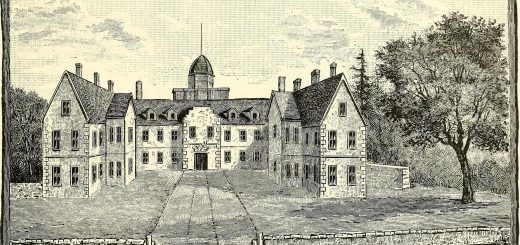Bewitched Child, Wearmouth Colliery
The following account of the story is extracted from‘Legends Superstitions of the County of Durham’ by William Brockie (1886). ‘It is far from uncommon, in Sunderland, Shields, Durham, Hartlepool, and other towns and villages, for mothers whose children are not thriving to think them bewitched. They then get a sheep or bullock’s heart from the butcher, stick it full of pins, and roast it before the fire. This breaks the charm, and the child afterwards could have got a black hen’s heart to burn along with the stuff, which would infallibly have broken the spell. The supposed witch was never allowed to enter the house, from that day forward. A young married woman at Wearmouth Colliery, whose initials were A. J., had a child that had been pining away till it was reduced to a skeleton. A neighbour came in one day and advised her to consult a gypsy woman then in the neighbourhood. The gypsy said the child had been bewitched by a female relative to whom the mother had given some sort of offence; and Mrs. J. was advised to get a black hen, cut it open alive, pull out its heart, stick it full of pins, and burn it in the fire, at twelve o’clock at night precisely. “Then, the witch will not be able to rest, but will come in, and ask for the loan of something, and your husband must be ready with a stick wherewith to fell her, that is, knock her down, which if he does, the spell will be broken and your child will recover.
Meanwhile the mischief-making neighbour went away and told the supposed witch, whose name was D.K., what fate was impending over her if she went to visit her relatives across the way. She therefore took care not to go. She had had a quarrel with the mother sometime before, and though nearly related, they were not on speaking terms, Mr. and Mrs. J. sat up that night, till long past the witching hour, the husband holding the rolling pin in his hand; but no witch made her appearance. The spell was not broken, therefore, and the child died.
This took place about ten years ago, say 1875.




Recent Comments